From Strep Throat to Leukemia: A Young Woman’s Battle for Health and Workplace Justice
In 2010, a 21-year-old department lead at a local drugstore began experiencing severe illness during her Sunday shift. Despite requesting to leave early due to her deteriorating condition, her manager insisted she find a replacement, reflecting a lack of support in the workplace. After securing coverage and leaving, her health rapidly declined, leading to a hospital visit where she was diagnosed with strep throat and subsequently admitted.
During her hospitalization, further tests revealed a more alarming diagnosis: an aggressive form of leukemia. This unexpected news transformed her brief illness into a prolonged battle for survival, involving intensive chemotherapy and extended hospital stays. Throughout this period, communication with her workplace was strained, with certain managers displaying irritation and a lack of empathy towards her situation.
Being sick at work is less than ideal, but for this woman, it was only the start of her troubles, and her revenge

Feeling awful, she asked her manager if she could leave work early, but he told her she needed to get someone to cover the rest of her shift first
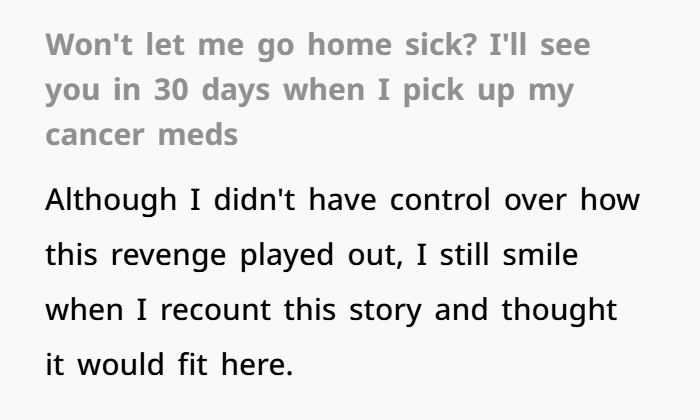
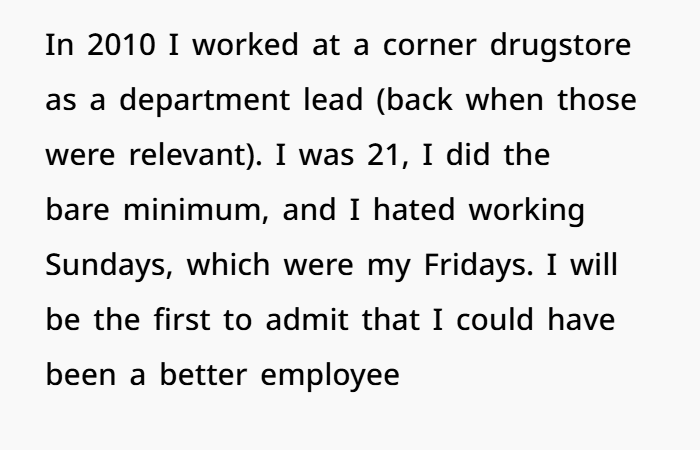

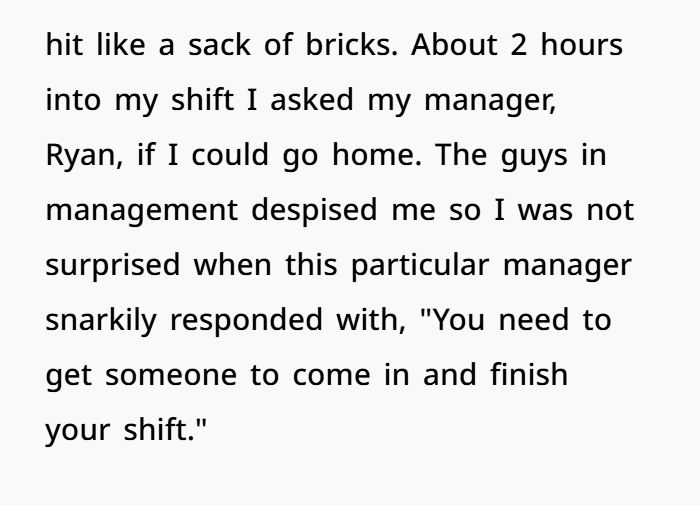

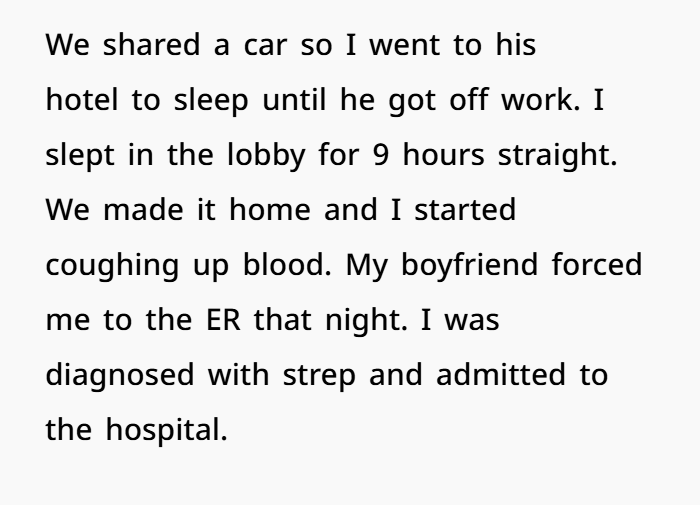
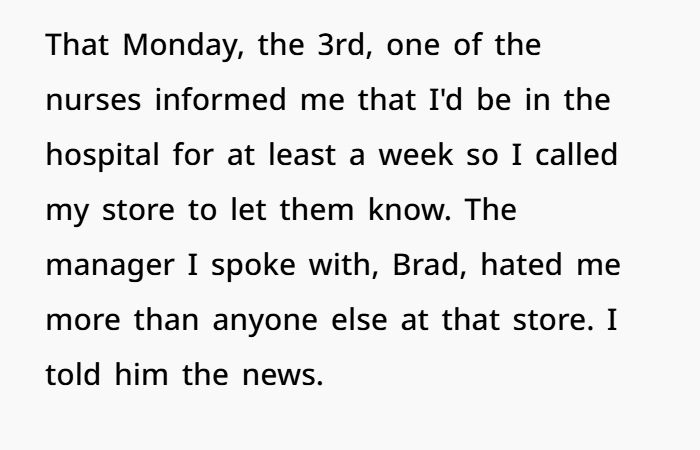

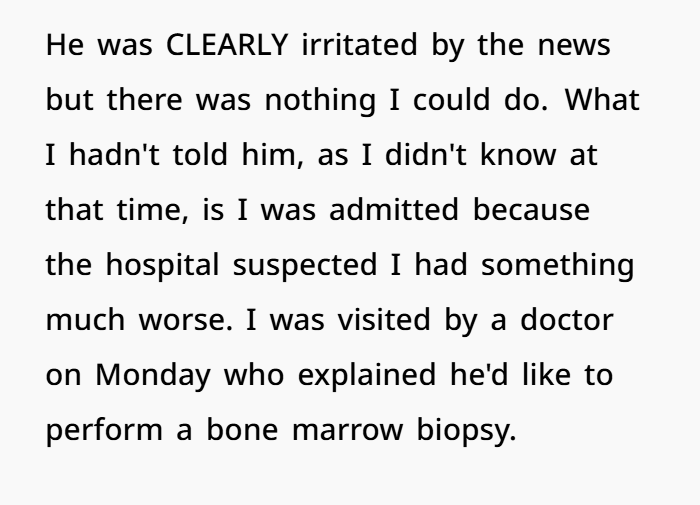

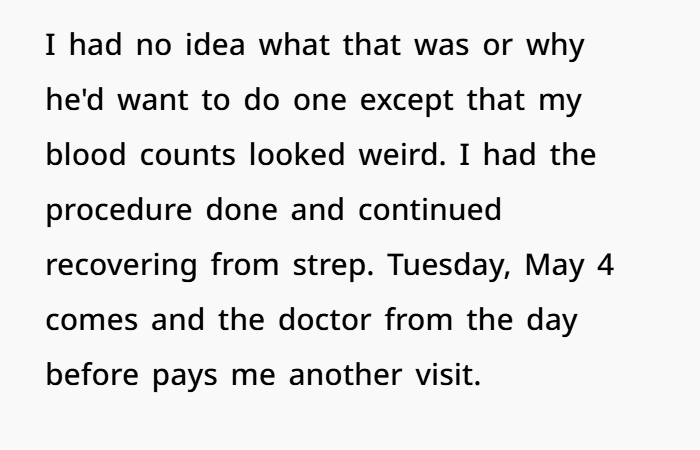
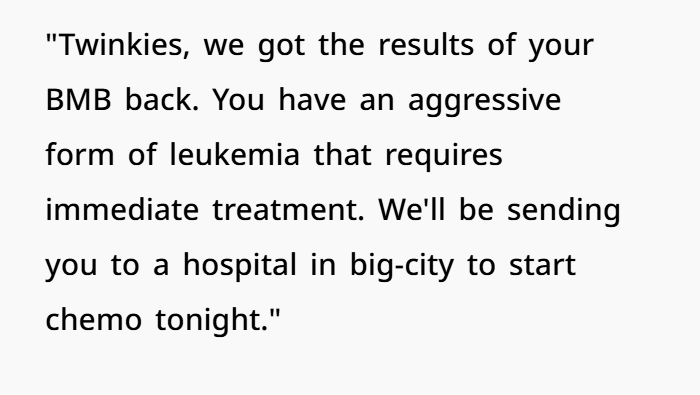
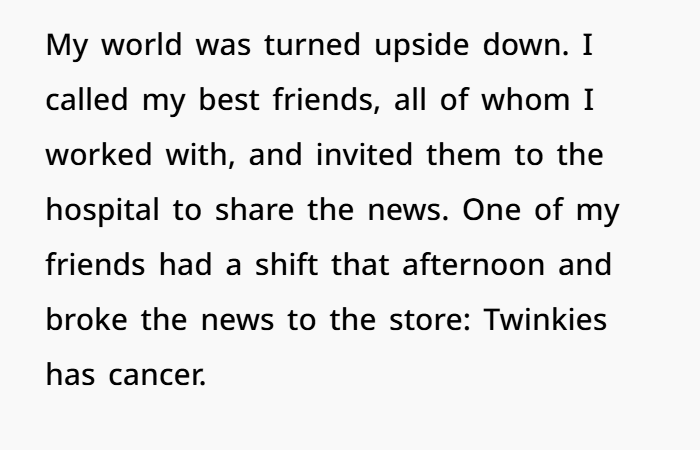
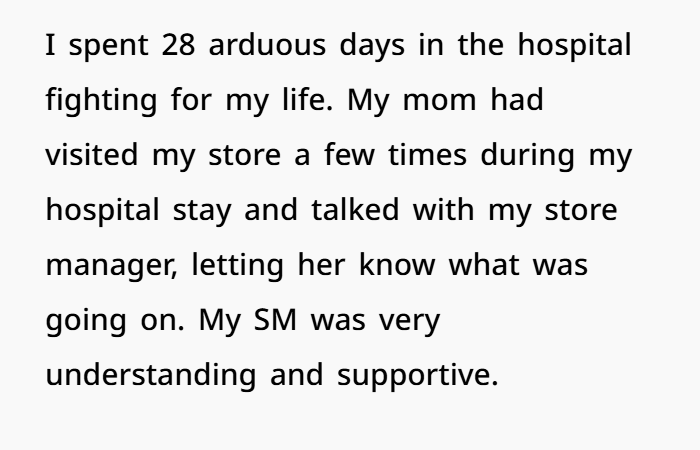
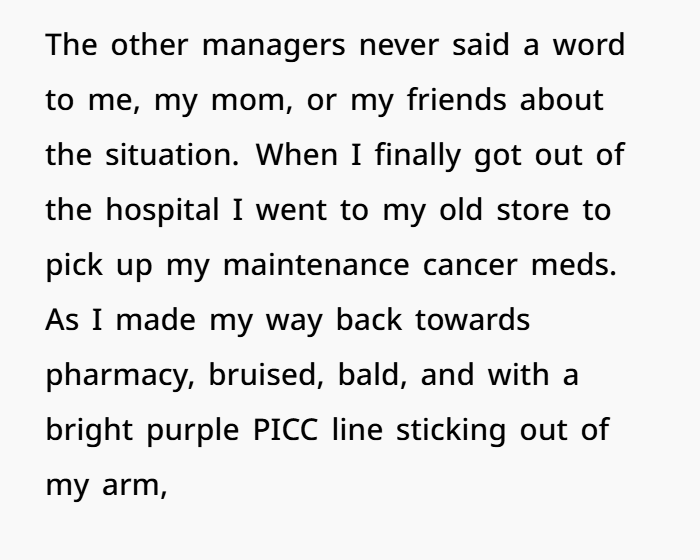

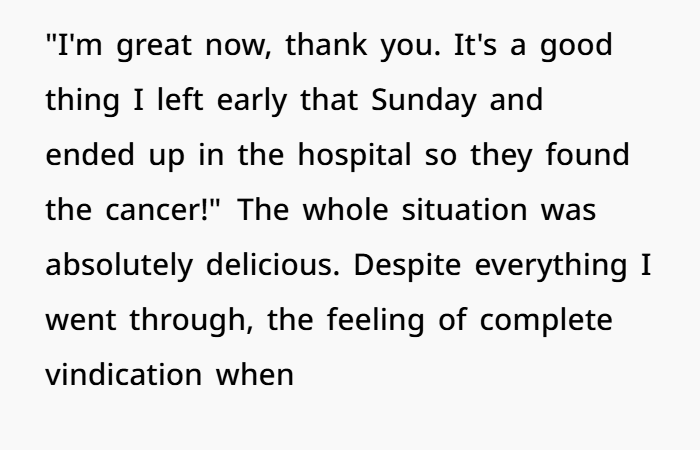
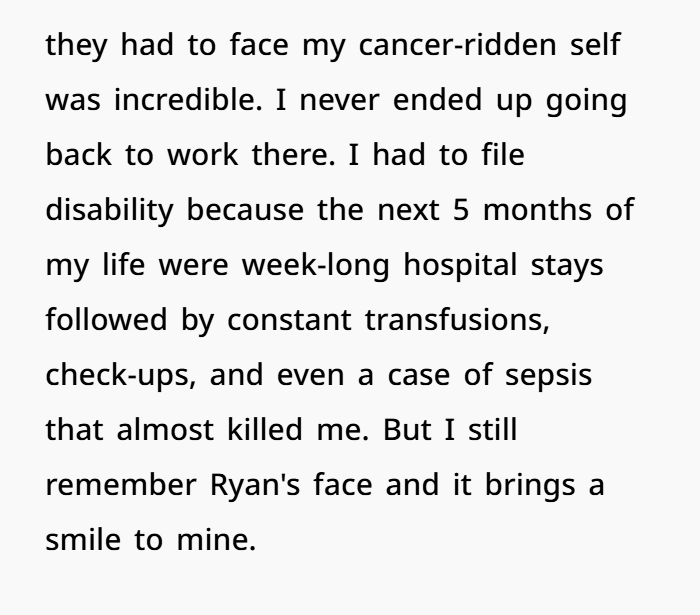

I’m truly sorry to hear about the challenges you faced during such a critical time in your life. Your experience sheds light on several important issues, including the unexpected ways serious illnesses can manifest, the critical importance of timely medical intervention, and the complexities of navigating workplace dynamics during health crises.
Unanticipated Diagnoses Following Common Illnesses
Your initial presentation with severe sore throat symptoms, which led to a strep throat diagnosis, followed by the discovery of acute myeloid leukemia (AML), underscores how serious conditions can sometimes masquerade as common ailments. There have been documented cases where individuals presenting with pharyngitis were subsequently diagnosed with acute leukemia. For instance, a case study highlighted a 32-year-old patient whose severe sore throat was an early manifestation of acute myelogenous leukemia . This emphasizes the importance of thorough medical evaluations when symptoms are unusually severe or persistent.
The Diagnostic Process for Acute Myeloid Leukemia
Diagnosing AML typically involves a bone marrow biopsy, a procedure where a needle extracts a sample of bone marrow, usually from the hip bone, to detect the presence of leukemia cells . This diagnostic step is crucial for confirming AML and determining the appropriate course of treatment.
Treatment and Hospitalization for AML
Treatment for AML often begins with induction chemotherapy aimed at achieving remission by eliminating as many leukemia cells as possible. This intensive treatment usually necessitates a hospital stay of about a month to monitor side effects and allow the bone marrow to recover . The duration and specifics of hospitalization can vary based on individual responses and complications.
Workplace Rights and Serious Health Conditions
Your account also brings attention to the challenges employees may face when dealing with serious health conditions in the workplace. In the United States, the Family and Medical Leave Act (FMLA) entitles eligible employees to up to 12 weeks of unpaid, job-protected leave per year for serious health conditions, ensuring continued health insurance coverage during this period . Additionally, the Americans with Disabilities Act (ADA) prohibits discrimination against individuals with disabilities, including those diagnosed with cancer, and requires employers to provide reasonable accommodations . Understanding these rights is crucial for employees navigating health challenges.
Emotional and Psychological Impact

Beyond the physical and logistical challenges, dealing with a life-threatening illness can have profound emotional and psychological effects. Feelings of isolation, anxiety, and depression are common among patients undergoing intensive treatments like chemotherapy. Accessing mental health support, whether through counseling, support groups, or trusted friends and family, is an essential component of comprehensive care.
In the comments, readers were delighted at the original poster’s delicious tale of revenge, with some sharing their own cancer stories

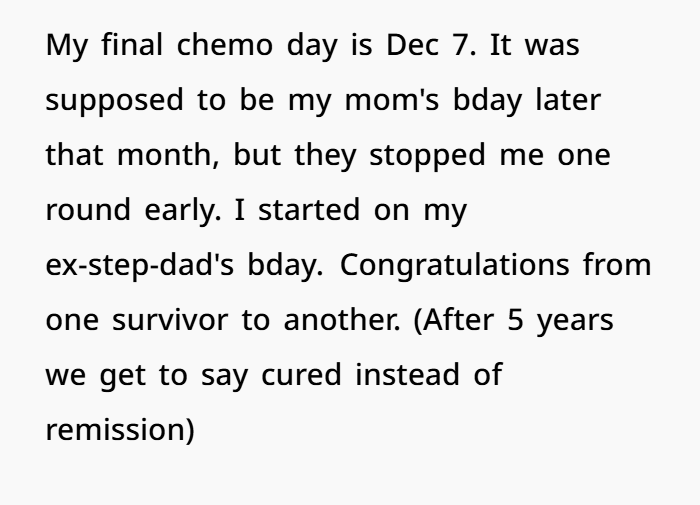

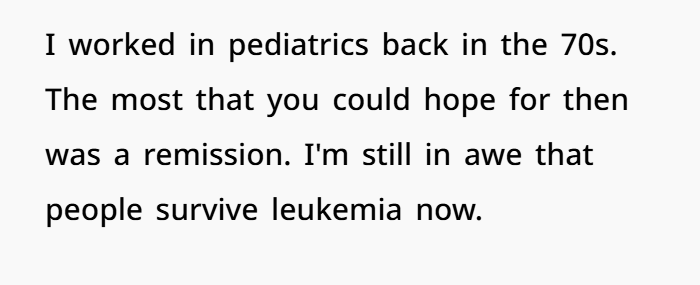
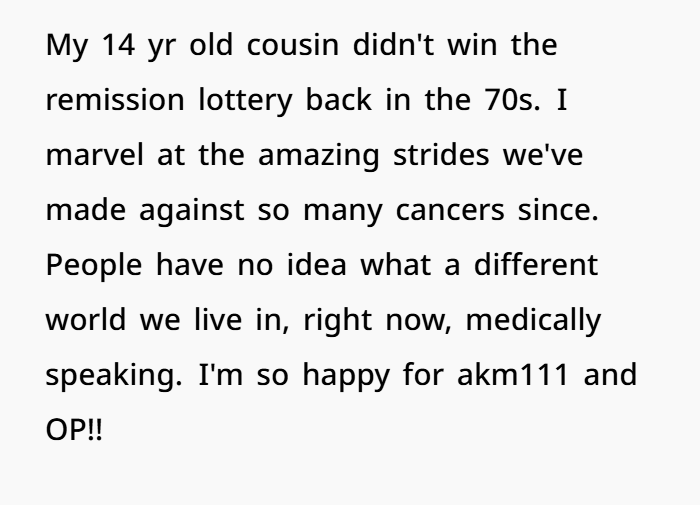


Your experience highlights the unpredictable nature of serious illnesses and the importance of advocating for one’s health. It also underscores the need for supportive and informed workplace policies that accommodate employees facing health crises. Sharing stories like yours can raise awareness and foster more compassionate and understanding environments both in healthcare settings and the workplace.

